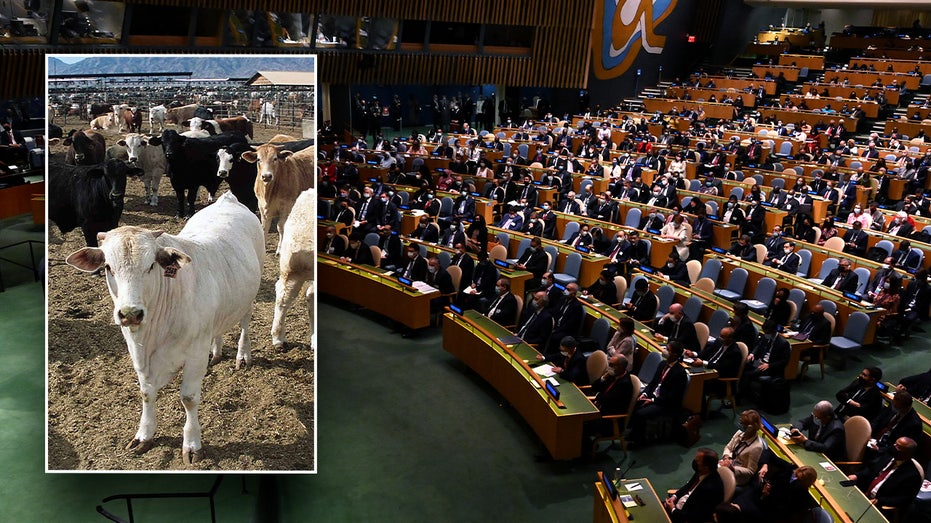FIRST ON FOX: Rep. Mike Flood, R-Neb., is planning to introduce a resolution this week condemning all United Nations recommendations that the U.S. lower its meat consumption to reduce carbon emissions and fight global warming.
Flood is planning to formally introduce the resolution Monday amid the ongoing U.N. COP28 climate change conference in Dubai, United Arab Emirates, where delegates are planning to issue a first-of-its-kind report that is expected to call for the West to reduce consumption of beef. The U.N. has, for years, called for individuals to ditch animal-based diets, which it says “have a high impact on our planet.”
“Resolved, that the House of Representatives (1) recognizes the importance of meat and livestock production to the United States economy; (2) recognizes the importance of meat and animal-based protein; (3) disapproves of United Nations recommendation to reduce meat consumption in their global food systems’ road map; and (4) opposes the use of any Federal resources to support attempts to reduce meat consumption,” Flood’s resolution states.
Flood, who serves on the Congressional Beef Caucus, joined a chorus of voices this week criticizing the U.N.’s Food & Agriculture Organization (FAO) for preparing its global food systems’ road map, which will reportedly include a call for the U.S. and other Western nations to ditch meat in favor of plant-based foods. That report is expected to be published as soon as Sunday during a COP28 session hosted by FAO.
UN CLIMATE SUMMIT SERVING GOURMET BURGERS, BBQ AS IT CALLS FOR AMERICANS TO STOP EATING MEAT
Critics, including Flood, have argued such a recommendation would present a threat to global food security, harm the economy and fail to consider emissions reductions achieved by the agriculture industry and American beef producers.
“As delegates from around the world are preparing to gather in Dubai to identify solutions to the climate change crisis, we call on them to look at solutions holistically. Solutions that seek to reduce meat consumption are misguided and will only lead to limited consumer choice and higher food prices,” National Cattlemen’s Beef Association Vice President of Government Affairs Ethan Lane said in a statement shared with Fox News Digital.
“At a time when malnutrition plagues countries across the world, a reduction of high-quality animal protein would disproportionately impact consumers who can ill-afford to pay more and are ultimately at the highest risk of malnutrition,” Lane added. “Reducing beef consumption in the U.S. is not a realistic or impactful solution for climate change. America’s beef producers and consumers around the globe deserve real solutions to the climate issue, not artificial barriers to protein consumption that will do nothing to solve the world’s climate issues.”
The global food system — which includes land-use change, actual agricultural production, packaging and waste management — generates about 18 billion tons of carbon dioxide per year, the equivalent of 34% of total worldwide emissions, according to a March 2021 study published in the Nature Food journal. FAO data indicates livestock alone is responsible for around 14.5% of global greenhouse gas emissions.
In the U.S., however, agriculture alone generates about 10% of total greenhouse gas emissions, federal data shows. The American agriculture sector accounts for just 1.4% of global emissions and has implemented a wide range of solutions, making it the nation’s lowest-emitting economic sector.
And beef cattle in the U.S. are responsible for just 2% of the nation’s greenhouse gas emissions and less than 0.5% of the world’s emissions.
“FAO emphasizes the critical need for an innovative plan and a concrete package of solutions to overhaul agrifood systems,” the organization said in a statement to Fox News Digital earlier this week.
“The Global Roadmap is positioned as a strategic tool to demonstrate that accelerated climate actions can transform agrifood systems, simultaneously addressing food security and nutrition challenges today and in the future without breaching the 1.5 degrees threshold. In this roadmap, FAO is urging for good food for today and tomorrow.”
























